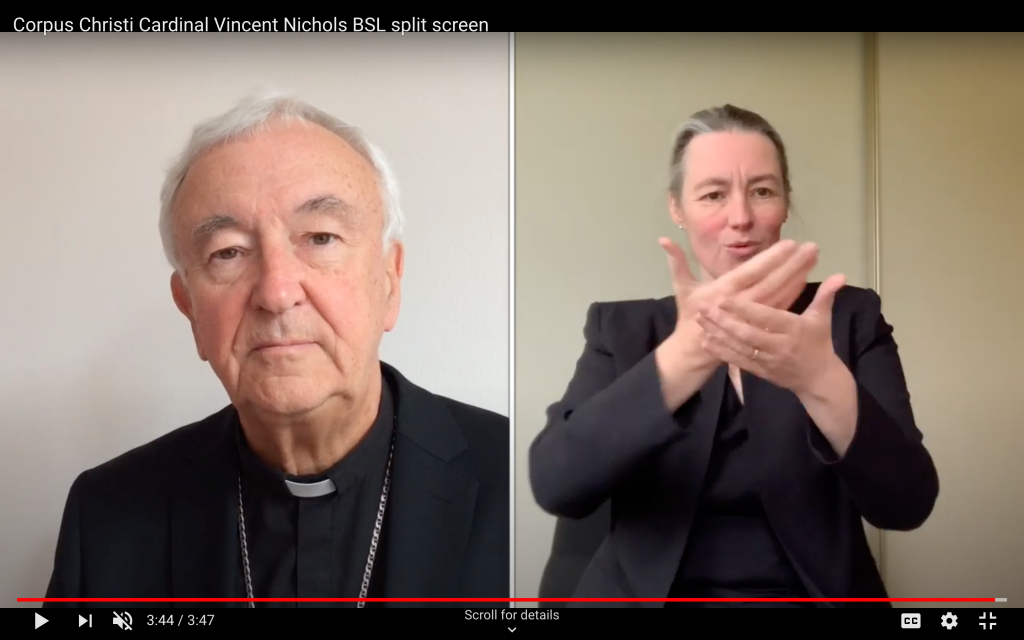This article was first published in the Catholic Times supplement of the Catholic Universe on 26th June 2020.
The Covid-19 pandemic has transformed society beyond recognition. Cities are largely deserted, and places of worship have fallen quiet. Society has retreated inwards, and as a result, social injustices have increased. Caritas Westminster, which works within
the Diocese of Westminster to promote social justice, has been attempting
to counter this trend. During the coronavirus crisis, Caritas Westminster has transformed its key services, allowing projects to continue to support individuals who are isolated or in need, motivated by the principle that social distancing should not equal social isolation.
Whilst the pandemic has forced the closure of many social action projects, one vital project that has remained open is Caritas Bakhita House, which provides women escaping human trafficking with the safety and support to allow them to begin the recovery process. Karen Anstiss, Service Manager at Caritas Bakhita House, said: 'The women were frightened of Covid-19, but also had their own concerns about motherhood, immigration, benefits, accommodation, and impending court cases.' Lockdown has caused a significant restriction to guests' independence, an essential part of their individual recoveries. Karen reflected that, 'for many of the guests escaping isolation, to be isolated once again is one of the worst things that can happen'. An added challenge for the team was that at the start of lockdown, one guest had just given birth, and two more were in their third trimester of pregnancy.
In response to these challenges, a 'new normal' was established in the house. Guests were encouraged to focus on activities on site, including baking, sewing, and gardening. Some of the classes that guests previously attended became virtual, including English Language classes, as well as Drama and Music therapy. Measures were also put in place to allow mothers to register births of newborns, and police interviews to resume in a safe and sensitive manner. For the eight guests and three babies currently in residence, the staff have ensured that the house continues to be a safe space, allowing them to continue their recoveries and helping prepare them for their new futures.
Not all of Caritas Westminster’s key services have remained physically open during the pandemic. Whilst Caritas Bakhita House remained open for the guests who live there, the doors to Caritas St Joseph’s have been closed throughout the crisis. Caritas St Joseph's offers a safe place for adults with intellectual disabilities to learn, as well as support for their families and friends. In the words of the Centre Manager, Gail Williams, the centre is 'a place where students find family, love and friendship.'
Since its closure, the team has made over 1,000 phone calls, a testament to the commitment of the staff to the students and families they support. As students have been unable to attend regular classes, staff have assembled and distributed over 800 resource learning packs for families and students to work through from home. The family of one of the students, Anna, said she, 'misses St Joseph’s and of course, all of her friends. She loves it there.' Whilst the COVID-19 pandemic has been devastating for the community at Caritas St Joseph’s, the centre has continued to support its students and families by expanding its outreach service. Without this, 'over 200 students and 300 families would be without lifelong learning', said Gail.
Creating a sense of belonging and serving people’s need for community is particularly apparent in the work of Caritas Deaf Service. Like many parishes, Caritas Deaf Service made the decision to move the religious services it leads online during the crisis, including signed and interpreted Masses, some of which have been recorded using split screen technology. Regular bible study sessions were also moved online, reaching over 160 people via Facebook (a significant increase on the usual eight attendees). Much of Caritas Deaf Service’s pastoral work has also been digitalised. Many of the calls made to clients have been made via video messaging platforms. 'Signs of Hope', the counselling service, has continued its essential work digitally. This digital revolution even allowed the team to move the annual Caritas Deaf Service pilgrimage to Walsingham online, attracting 162 virtual pilgrims.
For those without access to a computer, monthly newsletters have been sent out, including a 'Message of Hope' page with messages from priests, and printed versions of the bible study resources have been posted. Support from Caritas Deaf Service is also available via text. Digital platforms have allowed the work of Caritas Deaf Service to not only survive, but to thrive, reaching a wider audience. Shell Roca, Director of Caritas Deaf Service, said: 'Giving more people access to our services from a distance is something that we hope to carry on with in the future, alongside the important face to face ministry.'
Pope Francis once said: 'Love is always at the service of others. Because love is seen in actions, not words.' This is a fundamental tenet of Caritas Westminster, one adhered to even in the midst of a pandemic.
If you would like to hear more about the work of Caritas Westminster, please email caritaswestminster@rcdow.org.uk.
Caritas Westminster is a member of CSAN (Caritas Social Action Network), the Church’s social action agency in England and Wales. www.csan.org.uk




